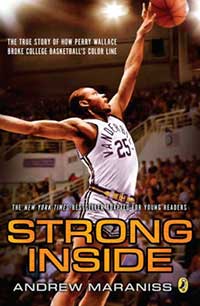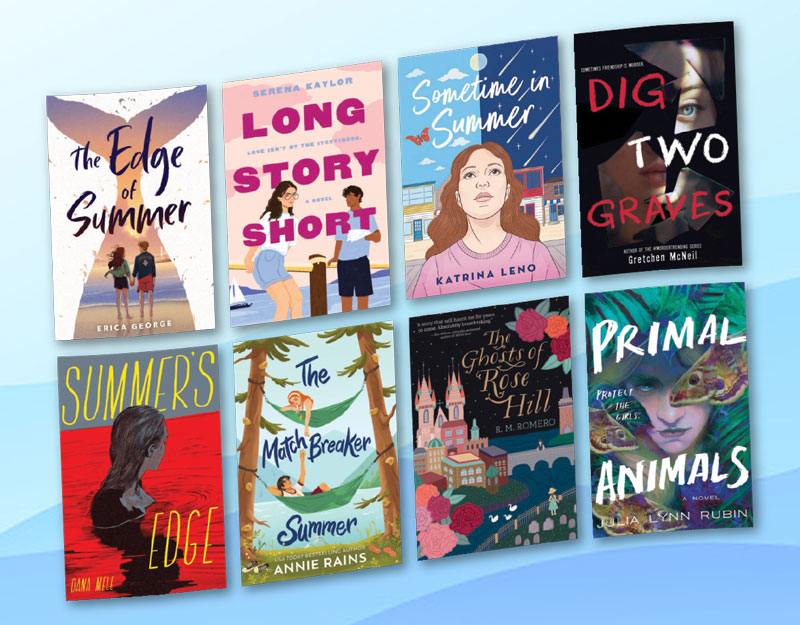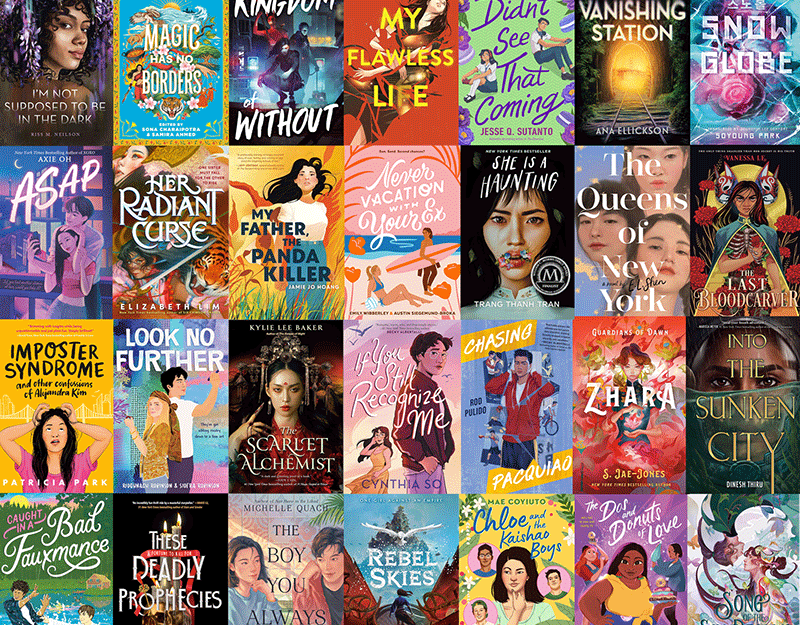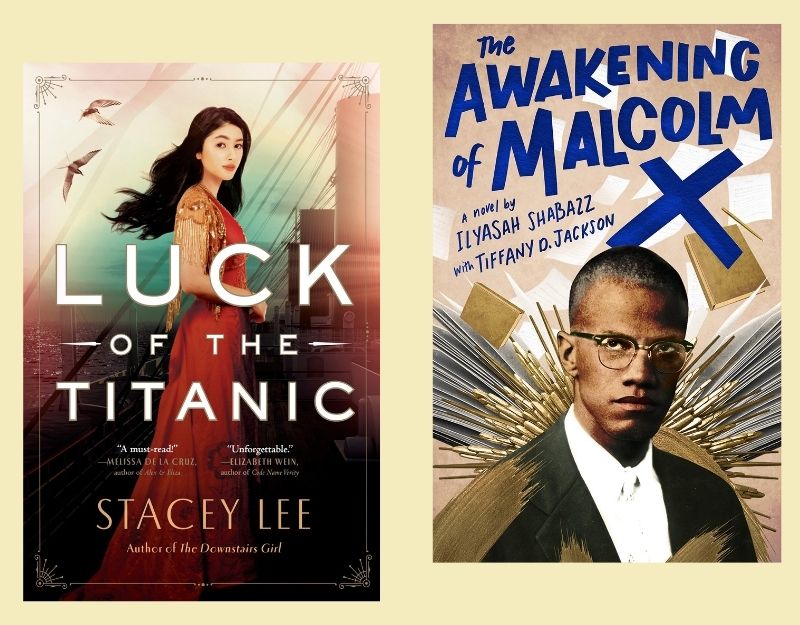THIS IS NO GAME: WHEN FACTS MATTER, SPORTS NON-FICTION IS A GOOD PLACE TO TURN, a guest post by Andrew Maraniss
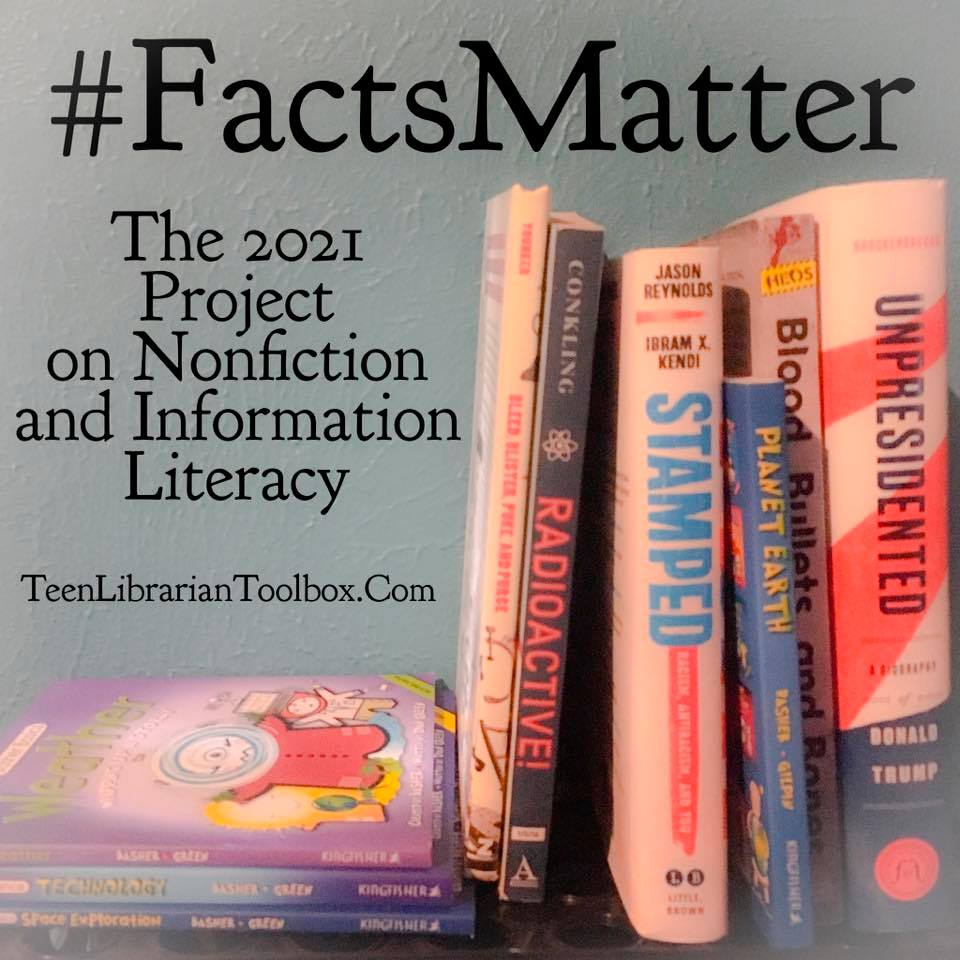
Everything we hunger for in this country right now – racial and economic justice, environmental sustainability, a stable democracy, managing COVID – requires a fundamental commitment to seeking the truth and acknowledging basic facts.
As this year’s theme for Teen Librarian Toolbox states, #FactsMatter.
It’s such a timely theme. And such an indictment of so many of our neighbors that we even have to say it.
With so many powerful institutions profiting from lies, “alternative facts,” and conspiracy theories – from Fox News to corners of the Internet to the Republican Party — it falls on the rest of us to push against the rising tide of misinformation and hate in whatever ways we can.
ADVERTISEMENT
ADVERTISEMENT
I’ve chosen to do it by writing books for young readers that extol the enduring values of truth, equity, and justice through the lens of sports.

My first book, STRONG INSIDE, is the story of Perry Wallace, the Vanderbilt basketball player who desegregated the Southeastern Conference in the 1960s and later became an esteemed law professor. My second book, GAMES OF DECEPTION, is the story of the first U.S. men’s Olympic basketball team, which played at the 1936 Olympics in Nazi Germany. My third book, which just came out this week, SINGLED OUT, is a biography of Glenn Burke, the first openly gay Major League Baseball player and inventor of the high-five. I’m writing a book now on the first U.S. women’s Olympic basketball team, to be told in the context of the women’s rights movement of the 1970s.
Why sports? First, I’ve been hooked as long as I can remember. I taught myself to read as a five-year-old by examining the back of baseball cards. The first time I cried of happiness came when I was 12 years old and Cecil Cooper delivered a game-winning hit for the Milwaukee Brewers in the 1982 playoffs. One of the biggest thrills of my life came in 1998, when I was able to take batting practice at Yankee Stadium as a member of the media relations staff for the Tampa Bay Rays. I went to college on a sportswriting scholarship and my ‘day job’ today is in the Athletic Department at Vanderbilt University.
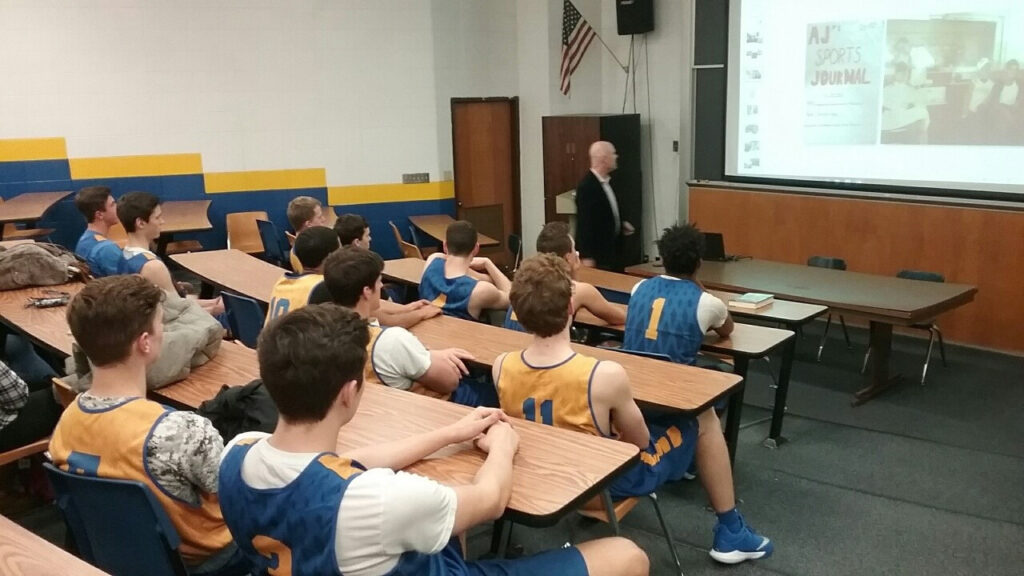
But more important than any of that, what I value most about writing about sports is that it’s a genre that is highly accessible to just about anyone. When a young person picks up a book with a baseball or basketball player on the cover, it’s likely that they’re not going to feel intimidated by the subject. But once they dig into the story, they’ll realize the stories are not about scores and statistics or tired sports clichés– but about the denial of justice to so many in America and around the world, whether by racism, fascism, antisemitism, homophobia, or sexism, and the critical difference between being a bystander and upstander in the face of such injustices.
Because sports-related nonfiction offers “windows and mirrors,” (the term originated by Dr. Rudine Sims Bishop) a peak into the lives of other people or a reflection of the reader’s own place in the world, they provide valuable opportunities for empathy and understanding. And the audience for sports books is probably as broad or broader than any other genre – no parameters on age, gender, sexual orientation, economic status, geography, academic achievement, race, or religion.
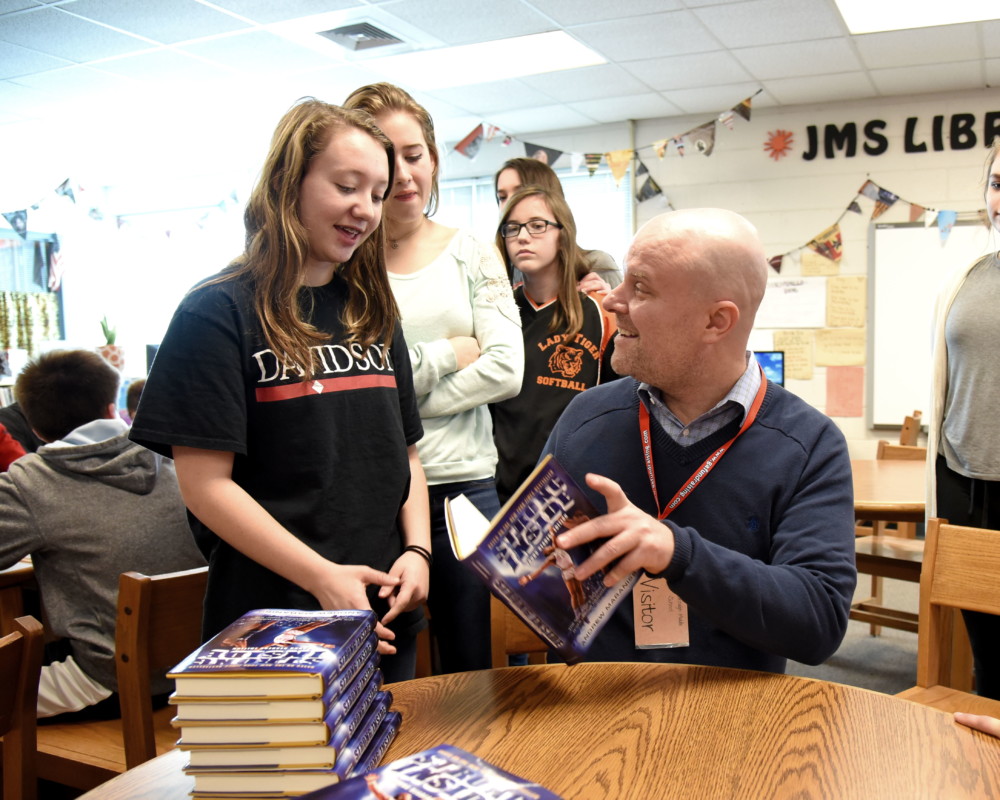
But within that universality, there is also a subversive element to the best sports books. For many people, the sports world has been seen as American as hot dogs and apple pie – where old-fashioned notions of patriarchy, patriotism, and white supremacy have traditionally gone unchallenged. So what better genre than sports to shine a light on the everyday elements of American life that have perpetuated injustice? These are the stories where the truth shines the brightest.
The lasting lesson of both STRONG INSIDE and GAMES OF DECEPTION, books that deal respectively with the civil rights movement here and the Holocaust in Nazi Germany, is the same: the profound danger of standing by and doing nothing when injustices are perpetrated against others. I think of that lesson often when I hear people criticize modern-day athletes for taking a stand for justice, whether it’s NFL players taking a knee or WNBA players supporting a Senate candidate. If the big truth to be learned from these monumental periods in world history is to speak up, then how can one fault athletes, citizens like anyone else, for using their platforms to call out injustice? When Fox commentator Laura Ingraham tells LeBron to “just shut up and dribble,” we see clearly that she’s not just missing the lesson of history, but actively suppressing the truth.

For those who haven’t succumbed to the notion that the truth is irrelevant, it’s easy to spot the liars. But we must also to turn a skeptical eye toward those who call for unity or civility. Of course, both concepts sound reasonable and are desirable long-term outcomes. But as Perry Wallace once told me, “reconciliation without the truth is just acting.” Any efforts toward unity and civility must include truth-telling and acknowledgement of facts as necessary preconditions. Unity and civility without justice are just other names for oppression.
The best nonfiction books – even sports books! — name the problem, praise the real-life heroes, call out the real-life villains, and pose direct questions where facts determine the right answers.
Now more than ever, #FactsMatter.
Meet the author
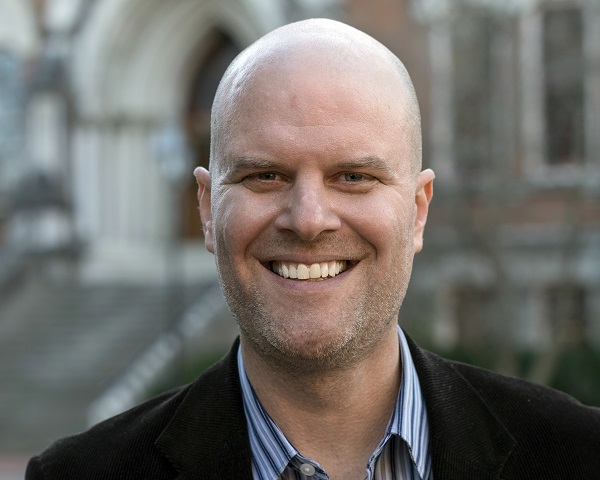
New York Times bestselling author Andrew Maraniss writes sports-related nonfiction for adult, Middle Grade and Young Adult readers. His books have received the Lillian Smith Book Award, RFK Book Awards Special Recognition Prize, and Sydney Taylor Honor Award. Andrew lives in Nashville and manages the Sports & Society Initiative at Vanderbilt University. Read more about his books at www.andrewmaraniss.com and follow him on Twitter @trublu24, Instagram @amaraniss, and on Facebook at /andrewmaranissauthor.
About Singled Out: The True Story of Glenn Burke
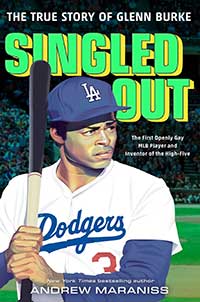
From New York Times bestselling author Andrew Maraniss comes the remarkable true story of Glenn Burke, a “hidden figure” in the history of sports: the inventor of the high five and the first openly gay MLB player. Perfect for fans of Steve Sheinkin and Daniel James Brown.
ADVERTISEMENT
ADVERTISEMENT
On October 2nd, 1977, Glenn Burke, outfielder for the Los Angeles Dodgers, made history without even swinging a bat. When his teammate Dusty Baker hit a historic home run, Glenn enthusiastically congratulated him with the first ever high five.
But Glenn also made history in another way—he was the first openly gay MLB player. While he did not come out publicly until after his playing days were over, Glenn’s sexuality was known to his teammates, family, and friends. His MLB career would be cut short after only three years, but his legacy and impact on the athletic and LGBTQIA+ community would resonate for years to come.
New York Times bestselling author Andrew Maraniss tells the story of Glenn Burke: from his childhood growing up in Oakland, his journey to the MLB and the World Series, the joy in discovering who he really was, to more difficult times: facing injury, addiction, and the AIDS epidemic.
Packed with black-and-white photographs and thoroughly researched, never-before-seen details about Glenn’s life, Singled Out is the fascinating story of a trailblazer in sports—and the history and culture that shaped the world around him.
ISBN-13: 9780593116722
Publisher: Penguin Young Readers Group
Publication date: 03/02/2021
Age Range: 12 – 17 Years
Filed under: Uncategorized
About Amanda MacGregor
Amanda MacGregor works in an elementary library, loves dogs, and can be found on Twitter @CiteSomething.
ADVERTISEMENT
ADVERTISEMENT
SLJ Blog Network
Name That LEGO Book Cover! (#53)
Cover Reveal and Q&A: The One and Only Googoosh with Azadeh Westergaard
Exclusive: Vol. 2 of The Weirn Books Is Coming in October | News
Fighting Public School Book Bans with the Civil Rights Act
ADVERTISEMENT


